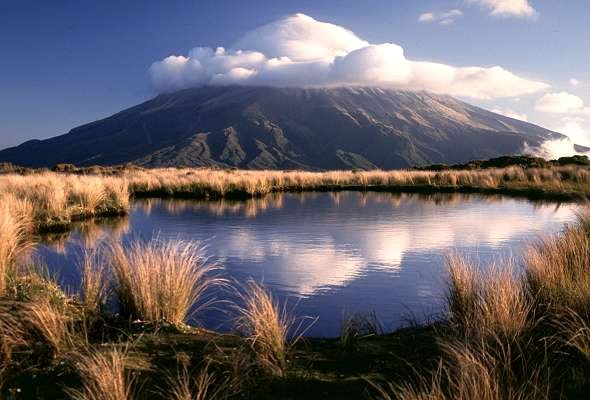Economic Effects
Government Budget affected:
Ami:
- Overall damage $US 30 million by the cyclone
- There is no money in the govt budget to help pay for the damage, there is a long term impact on the country as they are unable to pay for the damage.
Percy:
- the people of tokelau needed half a million dollars(NZ) to help restore their country.
Damage to industry:
Ami:
- sugar industry damaged from the wind - $US 11 million damage; sugar accounts for 18.5% of Fiji’s foreign currency earnings
- 200,000 people were employed, so their jobs are jeopardised (a quarter of the popn)
Percy:
- damage to buildings, a lot of equipment lost
- fishing boats scattered all over the island
- coconut plantations were damaged from the wind
- breadfruit plantations were damaged from salinisation
Infrastructure destroyed:
Ami:
- Repair to roads - $US 4.9 million by flooding and landslides
Percy:
- communication lines cut, roads broken up and power system is down
- sea wall damaged, however places that had a sea wall were less affected – villages that had sea walls believed their villages would have been swept away had the wall not been there.
Social Effects:
Housing Destroyed:
Ami:
- 2,500 houses destroyed by flooding, storm surges and high winds
Percy:
- 7 houses washed away by storm surges
Deaths and Injuries:
Ami:
- 15 people killed by flying debris in high winds and people drowned in floods
Percy:
- no deaths
- 1 person injured by flying debris
Community Infrastructure:
Ami:
- thousands of people were without power and water so they were unable to cook and drink fresh water. This was caused by flooding and high winds took out they power lines
Percy:
- power system was cut which meant that islands were without communication. High winds and storm surges took out the power supplies
Health Issues:
Ami:
- people got sick with typoid, dengue fever and leptospirosis caused by contaminated drinking water supplies
Percy:
- a number of cases of dengue fever and diarrhea caused by contaminated drinking water supplies
Monday, October 15, 2007
Saturday, September 29, 2007
FQ 5. Describe how different people perceive the environmental impacts of dairy farming and the measures taken to resolve these impacts
Problems, Causes, Solutions to environmental impacts caused by dairy farming:
Problem
- Contamination of ground water by nutrients from cow wastes and nitrogen fertilisers
Cause
- Leaching of nutrients (over supply of nutrients seeping) into soil in paddocks
- Increased stock densities eg Taranaki: 1975 – 1.43 cows/ha compared to 1996 – 1.70 cows/ha
Solution
- Reduce fertiliser application
- Reduce stock densities
- - - - - - - - - - - - - - - - - - - - - - - - - - - - -
Problem
- Contamination of streams, rivers and lakes by nutrients from cow wastes and nitrogen fertilisers
Cause
- Surface run-off from paddocks
- Effluent from cowsheds washed into farm streams from cowsheds
- Increased stock densities
Solution
- Reduce fertiliser applications
- Fence off riparian zones (stream banks) and plant shrubs and trees to trap surface run-off
- Better collection, treatment and disposal of cowshed wastes, eg. Two-pond system (Oxidation Ponds)
- Reduce stock densities
- - - - - - - - - - - - - - - - - - - - - - - - - - - - -
Problem
- Pugging
Cause
- Trampling of grass by cows
- Increased stock densities
Solution
- Create races for the cows to walk on around the farm
- Reduce stock densities
Problem
- Contamination of ground water by nutrients from cow wastes and nitrogen fertilisers
Cause
- Leaching of nutrients (over supply of nutrients seeping) into soil in paddocks
- Increased stock densities eg Taranaki: 1975 – 1.43 cows/ha compared to 1996 – 1.70 cows/ha
Solution
- Reduce fertiliser application
- Reduce stock densities
- - - - - - - - - - - - - - - - - - - - - - - - - - - - -
Problem
- Contamination of streams, rivers and lakes by nutrients from cow wastes and nitrogen fertilisers
Cause
- Surface run-off from paddocks
- Effluent from cowsheds washed into farm streams from cowsheds
- Increased stock densities
Solution
- Reduce fertiliser applications
- Fence off riparian zones (stream banks) and plant shrubs and trees to trap surface run-off
- Better collection, treatment and disposal of cowshed wastes, eg. Two-pond system (Oxidation Ponds)
- Reduce stock densities
- - - - - - - - - - - - - - - - - - - - - - - - - - - - -
Problem
- Pugging
Cause
- Trampling of grass by cows
- Increased stock densities
Solution
- Create races for the cows to walk on around the farm
- Reduce stock densities
Subscribe to:
Posts (Atom)







